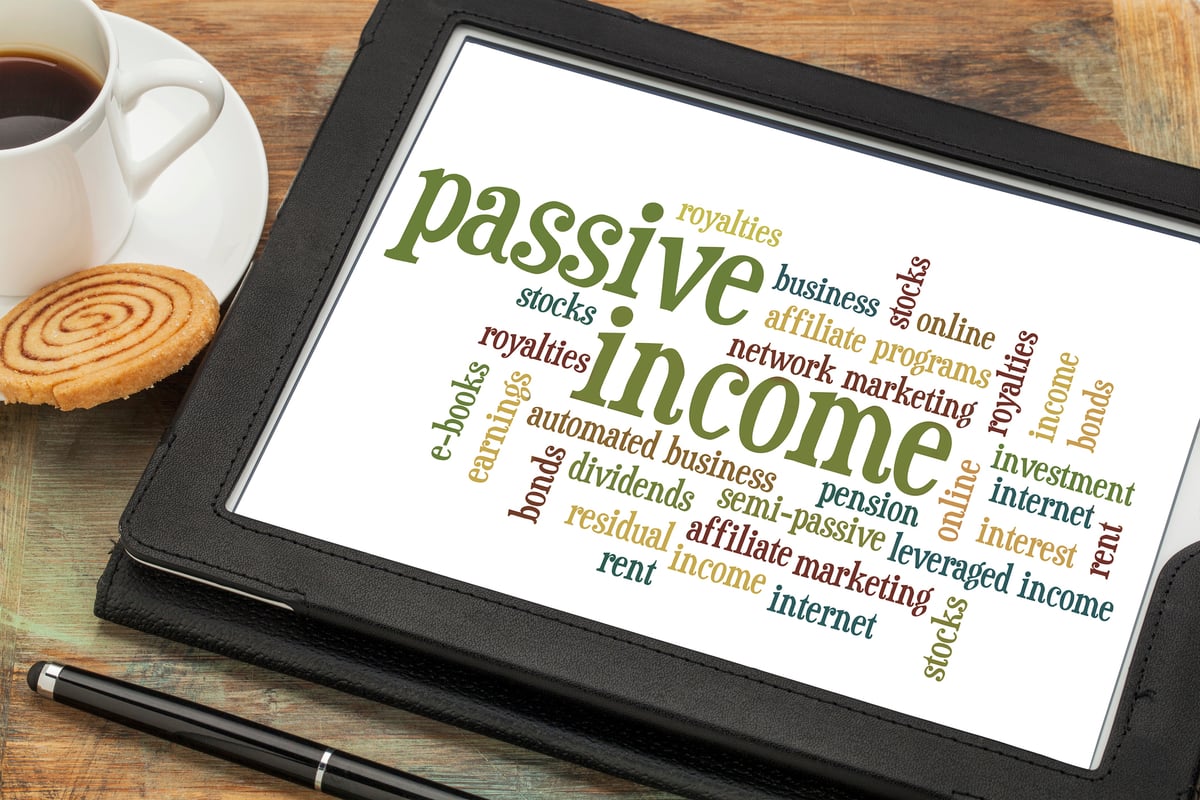Over the last century, no asset class has generated a higher average annualized return for investors than stocks. Though there are countless way for investors to put their money to work on Wall Street, few have been as historically successful as buying and holding high-quality dividend stocks.
Companies that pay a regular dividend to their shareholders typically check all the right boxes. Specifically, they tend to be profitable on a recurring basis, they're time-tested, and they're able to provide transparent growth guidance.
But what investors tend to love most about dividend stocks is their ability to run circles around nonpayers.

Image source: Getty Images.
In The Power of Dividends: Past, Present, and Future, the researchers at Hartford Funds, in collaboration with Ned Davis Research, found that dividend stocks averaged a 9.2% annual return between 1973 and 2024, and did so while being less volatile than the benchmark S&P 500. In comparison, nonpayers delivered a more modest annualized return of 4.31% over 51 years and were more volatile than Wall Street's encompassing stock index.
However, no two dividend stocks are alike. Although ultra-high-yield dividend stocks -- those with yields four or more times greater than the yield of the S&P 500 -- require more vetting, income gems can be found.
What follows are three ultra-high-yield dividend stocks, sporting an average yield of 6.72%, which make for no-brainer buys in August.
Enterprise Products Partners: 7.03% yield
The first ultra-high-yielding stock that's begging to be bought is energy giant Enterprise Products Partners (EPD +0.50%). Enterprise has raised its payout in each of the last 27 years and is currently topping a 7% yield.

NYSE: EPD
Key Data Points
Admittedly, some investors are going to be skeptical about putting their money to work in energy stocks given variables such as geopolitical tensions in the Middle East, as well as the uncertainty created by President Trump's tariff and trade policy. The spot price for crude oil has been trending low for much of the last year.
However, Enterprise Products Partners has avoided much of this pain thanks to its operating model. It's a midstream company, which is a fancy way of saying that it transports and stores oil and natural gas for drilling companies.
Being an energy middleman comes with a huge perk: cash flow predictability. An overwhelming majority of the multiyear contracts Enterprise has locked in with upstream drilling companies are fixed fee in nature. This removes all aspects of inflation and spot-price volatility from the equation and allows Enterprise to accurately forecast its cash flow from operations one or more years in advance.
Cash flow transparency is vital to energy companies -- especially those that tend to make bolt-on acquisitions or undertake a multitude of projects, like Enterprise Products Partners. It has more than a half-dozen major projects under construction, totaling $5.6 billion in expenditures. These projects, which are prominently focused on expanding its liquified natural gas exposure, should all be operational by the end of 2026 and are expected to be accretive to the company's cash flow.
Best of all, Enterprise Products Partners' stock remains reasonably priced. Despite this being the third-priciest stock market on record, Enterprise's forward price-to-earnings (P/E) ratio of 10.5 is roughly in-line with its trailing-five-year average forward P/E.

Image source: Getty Images.
Pfizer: 7.39% yield
A second stellar ultra-high-yield stock that stands out for all the right reasons in August is pharmaceutical pillar Pfizer (PFE +1.45%). Due to weakness in its shares over the last three years, its yield has soared to almost 7.4%. But keep in mind that management is confident this payout is sustainable.
As I've stated previously, Pfizer stock has been punished for the company's overwhelming success during the COVID-19 pandemic. Its ability to develop a vaccine (Comirnaty) and oral therapy (Paxlovid) led to more than $56 billion in combined COVID-19 therapy sales in 2022. Last year, sales tumbled to $11 billion, combined, from these two drugs, and revenue is likely to fall further this year.
But if investors widen their lens to just the last four years, they can see how far Pfizer has come as a company. Excluding COVID-19 therapies, net sales have been organically growing. Further, total sales, including COVID-19 treatments, surged by 52% between 2020 and 2024. Pfizer has become a stronger and more diversified drugmaker, yet its share price has materially weakened. This price dislocation offers an opportunity for investors to pounce.
On top of organic growth, Pfizer made a splash with its $43 billion all-share buyout of cancer-drug developer Seagen in December 2023. This deal added more than $3 billion in annual sales, as well as provided a pathway for significant cost synergies in the years following its completion. Most importantly, it vastly expands Pfizer's cancer drug pipeline.

NYSE: PFE
Key Data Points
To build on this previous point, management is trimming the fat companywide. Collective cost savings by the end of this year, inclusive of Pfizer's manufacturing optimization program, should total $4.5 billion. This is expected to have a notably positive impact on earnings per share.
Rounding things out, the valuation makes sense. Pfizer's forward P/E of 7.5 equates to a 26% discount to its average forward P/E over the last half-decade.
Realty Income: 5.75% yield
The third ultra-high-yield dividend stock that makes for a no-brainer buy in August is none other than the premier retail real estate investment trust (REIT), Realty Income (O +0.28%). Known as "The Monthly Dividend Company," Realty Income has increased its payout 131 times over the past three decades and is currently yielding close to 5.8%!
Considering how much uncertainty exists with regard to President Trump's tariff and trade policy, it's understandable if some investors are leery of stocks that have anything to do with retail. But Realty Income is a different breed of company that can transcend a lot of these concerns.
When the March quarter came to a close, it had more than 15,600 commercial real estate (CRE) properties in its portfolio. Per the company, 91% of the total rent derived from these CRE assets is "resilient to economic downturns and/or isolated from e-commerce pressures."

NYSE: O
Key Data Points
Realty Income prominently leases to stand-alone businesses that drive foot traffic in any economic climate. Think grocery stores, drugstores, dollar stores, and auto repair chains, among other relatively recession-resistant retailers. Leasing to brand-name, time-tested companies is a key reason its rental delinquency rate has remained minimal.
Additionally, Realty Income tends to lock in its customers for the long-term, with its weighted-average lease length clocking in at 9.1 years. Long initial lease terms, coupled with careful vetting and the smart dispositions of CRE assets, has kept its occupancy rate consistently higher than its peers.
Keeping with the theme, Realty Income stock is historically inexpensive at the moment. It's trading at 12.4 times estimated cash flow for 2026, which works out to a 22% discount to its average multiple to cash flow over the past five years.





